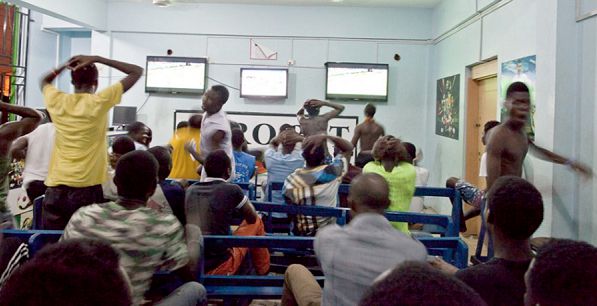Gaming addiction is rapidly emerging as a hidden epidemic in Ghana, with experts warning that its far-reaching impact could jeopardise both individual lives and national progress.
Globally, the World Health Organization (WHO) reports that 3 per cent of the population suffers from gaming disorder, with the highest rates recorded in South Korea, Japan, and the United States.
In Ghana, this growing issue is taking a toll on the nation's youth, who are facing significant consequences, including declining academic performance, deteriorating mental health, and strained social relationships.
The Chief Executive Officer of the Mental Health Authority, Professor Adwoa Pinaman Appau, has raised alarms over the escalating threat of gaming addiction, cautioning that it could pose a serious barrier to the country's development.
“Gaming has evolved into a global phenomenon, providing entertainment, social connection, and even skill development. However, the power of these virtual worlds can be so overwhelming that it leads to addiction, with devastating consequences not just for individuals but for families and society at large. This is no longer a personal issue; it has become a public health crisis that demands immediate action,” Prof. Appau said.
The consequences of gaming addiction in Ghana are most acute among the youth, a vulnerable demographic.
Excessive gaming is linked to severe outcomes such as depression, anxiety, and social isolation, undermining the mental well-being of teenagers and young adults across the nation.
Prof Vincent Agyapong, representing Dalhousie University and the Global Psychological eHealth Foundation, makes the urgent call for swift action to address the mental health crisis.
“The need for well-trained, compassionate psychiatric professionals is more critical than ever. Gaming addiction, along with other mental health disorders, is too often overlooked.
"We must harness every platform available to raise awareness, foster understanding, and build pathways for meaningful change,” Prof Agyapong said.
Gaming addiction is not a problem isolated to the individual; it is a national issue that demands a unified response.
Authorities and mental health professionals are advocating for more in-depth research, increased public awareness, and the implementation of stronger policies to prevent the issue from worsening.
This growing crisis is not just a threat to individuals but to the nation’s future as a whole.
To protect Ghana’s progress, immediate, concerted action is needed to combat gaming addiction and its destructive impact on the nation's youth.
Latest Stories
-
Coach Chris Baffour opens up on his Rospak SC journey amid contract talks
15 minutes -
CIHRM holds 4th AGM with a pledge to play key role in economy
22 minutes -
NPP race: I’m not here to test the waters; I’m here for power – Bryan Acheampong
34 minutes -
Oklahoma City Thunder beats Indiana Pacers to win first NBA title
47 minutes -
Today’s Front pages: Monday, June 23, 2025
1 hour -
World Refugee Day: World Vision Ghana advocates empathy for refugee children
2 hours -
NPA acting CEO assures nation of 2-month fuel reserve amid global uncertainties
2 hours -
Suspected suicide bomber kills 12 in Nigeria’s Borno state
2 hours -
Customs cautions public against importing vehicles without manifest to Ghana
2 hours -
Many children do not know they have eye problems – Coordinator
2 hours -
Ghana welcomes Europe-Iran diplomatic thaw, urges Israel to join talks
3 hours -
Let us unite for victory – Bryan Acheampong urges NPP
3 hours -
Kwesi Pratt Jnr endorses incumbent GJA leadership ahead of crucial elections
3 hours -
SHEQ-PA Ghana champions sustainability at UMaT with plastic receptacle donation on World Environment Day
3 hours -
CCMA to demolish all dilapidated buildings in Cape Coast – Mayor
3 hours

